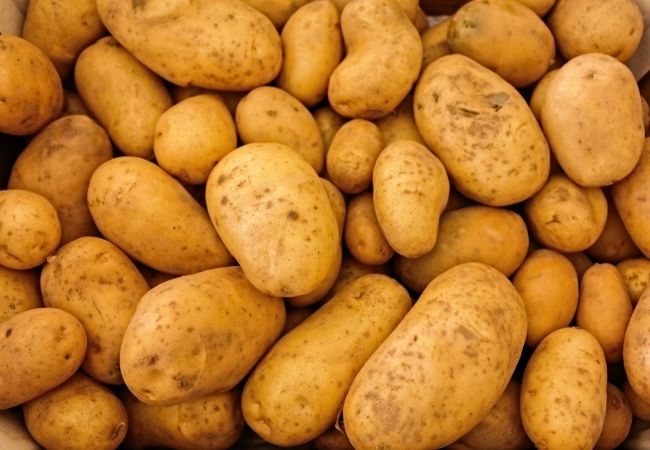
Europeans finding storage treatment alternatives with looming loss of CIPC
While the European Commission only recently made its final decision, most UK farmers have long accepted the fact that the regulatory authority is unlikely to renew chlorpropham (CIPC), a sprout suppressant used primarily in potatoes.
After member nations were unable to reach a majority consensus, judgment was passed back to the commission, which originally advised that approval should be withdrawn. The commission then officially opted not to renew CIPC on June 18.
CIPC’s ongoing uncertainty has UK growers in search of viable alternatives.
“I’m afraid we don’t have all that many answers,” Adrian Briddon, senior scientist at Sutton Bridge Crop Storage Research (SBCSR), said just prior to the commission’s June ruling. “In all likelihood, that decision is going to go against CIPC and that will leave us with relatively few alternative sprout suppressants.”
Use of chlorpropham on crops is permitted in both the U.S. and Canada.
Finding other storage solutions
While waiting on the final decision, the UK’s SBCSR took action with its launch of the Storage Network. Potato storage managers from all Agriculture and Horticulture Development Board (AHDB) levy-paying businesses will now be able to request a site visit from the network and receive one-to-one advice. AHDB-trained independent advisors will deliver the advice.

“At the moment, we’ve got ethylene and spearmint oil available,” said Briddon. “We’ve got Maleic Hydrazide registered, but with question marks around how it can be used.
“We’re still waiting on the other product, DMN, which is registered in Europe, but not yet registered in the UK.”
The network was launched at Herefordshire Storage Day where AHDB communicator Stuart Baxter spoke with Briddon and Adrian Cunnington, head of crop storage research at Sutton Bridge, to learn more about the new network.
While site visits are available to all levy-paying AHDB members, there are limitations to the number of visits a farmer could receive. Growers can expect an overview of current available products, as well a conversation about their individual storage arrangements to establish what can be done to improve or make new options work going forward.
In preparation, AHDB and SBCSR sent specialists to The Netherlands and Germany to visit potato stores where CIPC had been pulled from use.
“They were more than making do,” Cunnington said. “They were succeeding with good sprout control both from using Biox M and DMN with a pre-treatment of Maleic Hydrazide.”
Cheaper potato storage alternatives
Dirk Garos, director of the UK-based postharvest treatment company Restrain, offers information on the future of sprout suppressants with special focus on the use of ethylene, a product he said is easy to apply and a very cheap alternative to CIPC.
Restrain offers a system that uses a generator to create ethylene right in the store using the raw material ethanol. The generator transforms the ethanol, which is regulated by a sensor to maintain an ongoing, low concentration.
Ethylene gas blocks the elongation in the potato sprout by way of blocking cell division, Garos explained. From the outside the appearance of the potato does not change. Should there already be a sprout present, the ethylene will prohibit it from growing in length, but it will become thicker. Blocking cell elongation, Garos said, removes the risk of internal growth.
Sprout suppression is determined by variety, though, Cunnington said.
“Varieties have a characteristic dormancy,” he said. “If there’s a long dormant variety, we can reduce the need for sprout suppressant and our costs by using a long dormant variety.” In addition,
“And similarly, if we can bring the store temperature down so varieties that have low-temperature tolerance … that also reduces sprouting pressure, so we can make do with less sprouting suppressant overall.”
While ethylene works on all varieties, Garos cautions those who are selling potatoes for processing, especially for fries. Restrain is currently working with processors to determine which varieties can withstand ethylene.
The cost of CIPC is much higher than ethylene, which is a driving factor for uptake by farmers and store managers as well. The cost of applications of ethylene in a 1,000-ton store are nearly on par with the cost of CIPC applications. Garos said ethylene gas is four to six times cheaper than any other alternative.
The CIPC phase-out process in the EU started Jan. 1, 2020.
“Obviously, when we lose CIPC, we need to make those decisions quickly as to what alternatives we’re going to use,” Briddon said. “People can be rest assured that there’s a lot of work going on behind the scenes at Sutton Bridge.”
— This is the latest installment of Global Perspectives, a series that looks at potato production from around the world and how international developments could affect U.S. producers. More from Global Perspectives.







